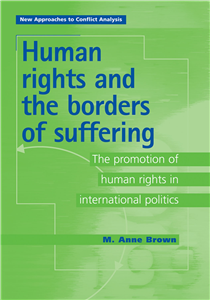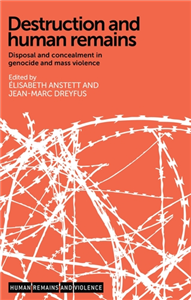Your Search Results
-
Promoted ContentJune 2010
Kinder in Deutschland 2010
2. World Vision Kinderstudie
by Herausgegeben von World Vision Deutschland e.V., World
-
Promoted ContentDecember 1987
Allegorien des Lesens
by Paul Man, Werner Hamacher, Peter Krumme, Werner Hamacher
Im Falle Paul de Mans ist die begriffliche Charakterisierung seines Vorgehens zusätzlich erschwert dadurch, daß die Theorie nie losgelöst von den Texten, an denen sie gewonnen wird, betrachtet werden kann.
-
 Trusted Partner
June 1993
Trusted Partner
June 1993Die Ideologie des Ästhetischen
by Paul Man, Karl Heinz Bohrer, Christoph Menke, Jürgen Blasius, Christoph Menke
Als Paul de Man 1983 starb, war er der wohl bekannteste und einflußreichste Vertreter einer Richtung der Literaturkritik und ihrer Theore, die allgemein als »dekonstruktiv« bezeichnet wird. Kennzeichnend für diese Richtung ist eine erneute Konzentration auf die innere Verfaßtheit der literarischen Texte. Eine erste Auswahl dieser methodisch vorbildlich wie brillant geschriebenen Texte ist 1988 unter dem Titel »Allegorien des Lesens« in der edition suhrkamp erschienen. Die vorliegende Auswahl konzentriert sich auf die methodologischen und theoretischen Prämissen dieses Vorhabens, wie sie die Abhandlungen über die Zeitlichkeit der Literatur, über Shelley und über die Autobiographie deutlich machen. Sich auf die immanente Verfaßtheit und Bewegung von Texten einzulassen ist nach de Man kein selbstzweckhaftes, folgenloses Unternehmen. De Man beansprucht vielmehr für seine »Rückkehr zur Philologie« eine allgemeine Bedeutung; die Literaturkritik ist zugleich philosophische und politische Kritik. Damit ist der zweite Schwerpunkt dieser Auswahl bezeichnet. De Man erläutert diese These zum einen in kritischer Auseinandersetzung mit der Philosophie Jacques Derridas. Zum anderen zeigt er an zentralen Texten der ästhetischen Tradition, an Kant und Hegel, daß ihr falsches – »ideologisches« – Verständnis literarischer Texte unter der Kategorie des »Ästhetischen« ebenso weitreichende philosophische wie politische Konsequenzen hat.
-
 Trusted Partner
January 2017
Trusted Partner
January 2017Der Deutsch-Russische Handels- und Schiffahrtsvertrag vom 20. März 1894.
(Staats- und socialwissenschaftliche Forschungen XVII.3).
by Human, Arthur
-
 Trusted Partner
June 2017
Trusted Partner
June 2017Frauen der 1920er Jahre
Glamour, Stil und Avantgarde
by Thomas Bleitner, Man Ray, Edward Steichen, Claude Cahun, Dora Kallmus
In den 1920er Jahren war vieles wagemutiger, unkonventioneller und exzessiver als heute. Keine Zeit hat so viel Glamour, Stil und Avantgarde hervorgebracht, und eine nie gekannte Experimentierlust erobert Bühnen, Kunstateliers, den Sport und so manches Schlafzimmer. Frauen machen den Flug- und Führerschein, sie greifen zur Filmkamera, sie designen eine neue Mode, sie rauchen und trinken und tanzen fröhlich am Abgrund. Thomas Bleitner stellt in diesem opulent bebilderten Band legendäre und unvergleichliche Frauen aus Film, Fotografie, Sport, Mode und Kunst vor, die in den 1920er Jahren in Berlin, Paris und New York alte Rollenmuster auf den Kopf stellten und damit für Furore sorgten. »Als die Frauen begannen, ihre Röcke zu kürzen und ihre Haare zu stutzen, war dies der größte Umbruch in der Geschichte der Mode der letzten hundert Jahre.« New York Vogue vom 1. Juli 1928
-
 Trusted Partner
April 2003
Trusted Partner
April 2003Crazy New York
Die Frauen von Harlem und Greenwich Village
by Barnet, Andrea / Illustriert von Abbott, Berenice; Illustriert von Ray, Man; Deutsch Stromberg, Kyra
-
 Trusted Partner
November 2007
Trusted Partner
November 2007Kinder in Deutschland 2007
1. World Vision Kinderstudie
by Herausgegeben von World Vision Deutschland e.V.
-
 Trusted Partner
March 2008
Trusted Partner
March 2008Kleine Entdecker – Bleibt die Zeit auch manchmal stehen?
Über unseren Zeitbegriff
by Kang, Seong-Eun / Koreanisch Zaborowski, Hans-Jürgen; Illustriert von Oh, Seung-Man
-
 Trusted Partner
Trusted Partner
-
 Trusted Partner
Trusted Partner
-
 Trusted Partner
January 1983
Trusted Partner
January 1983Der Naturgarten
Mehr Platz für einheimische Pflanzen und Tiere
by Schwarz, Urs / Vorwort von Stern, Horst; Herausgegeben von World Wildlife Fund
-
 Trusted Partner
April 2002
Trusted Partner
April 2002Performanz
Zwischen Sprachphilosophie und Kulturwissenschaften
by Uwe Wirth, John L. Austin, John R. Searle, Roland Barthes, Michel Foucault, Jacques Derrida, Wolfgang Iser, Paul Man, Jürgen Habermas, Erving Goffman, Victor Turner, Stanley J. Tambiah, Umberto Eco, Erika Fischer-Lichte, Judith Butler, Sybille Krämer, Doris Kolesch, Annette Jael Lehmann, Niels Werber, Eckhard Schumacher, Uwe Wirth, Uwe Wirth
Nach seinem Erfinder, dem Sprachphilosophen John L. Austin, ist Performanz »ein neues Wort und ein garstiges Wort, und vielleicht hat es auch keine sonderlich großartige Bedeutung«. Mittlerweile findet dieser Begriff jedoch in unterschiedlichster Bedeutung Anwendung in den Kulturwissenschaften, von der Philosophie über die Linguistik, Soziologie, Anthropologie, Ethnologie, Theaterwissenschaft, Literaturtheorie, Medientheorie bis hin zu den Gender Studies. Der Band versammelt die Grundlagentexte von Austin bis Butler und zeigt in Originalbeiträgen Perspektiven der aktuellen Performanzdebatte auf.
-
 Trusted Partner
Humanities & Social SciencesNovember 2023
Trusted Partner
Humanities & Social SciencesNovember 2023Critical theory and human rights
From compassion to coercion
by David McGrogan
This book describes how human rights have given rise to a vision of benevolent governance that, if fully realised, would be antithetical to individual freedom. It describes human rights' evolution into a grand but nebulous project, rooted in compassion, with the overarching aim of improving universal welfare by defining the conditions of human well-being and imposing obligations on the state and other actors to realise them. This gives rise to a form of managerialism, preoccupied with measuring and improving the 'human rights performance' of the state, businesses and so on. The ultimate result is the 'governmentalisation' of a pastoral form of global human rights governance, in which power is exercised for the general good, moulded by a complex regulatory sphere which shapes the field of action for the individual at every turn. This, unsurprisingly, does not appeal to rights-holders themselves.
-
 Trusted Partner
International relationsApril 2010
Trusted Partner
International relationsApril 2010Human Rights and the Borders of Suffering
The Promotion of Human Rights in International Politics
by Anne Brown
This book, newly available in paperback, argues for greater openness in the ways we approach human rights and international rights promotion, and in so doing brings some new understanding to old debates. Starting with the realities of abuse rather than the liberal architecture of rights, it casts human rights as a language for probing the political dimensions of suffering. Seen in this context, the predominant Western models of rights generate a substantial but also problematic and not always emancipatory array of practices. These models are far from answering the questions about the nature of political community that are raised by the systemic infliction of suffering. Rather than a simple message from 'us' to 'them', then, rights promotion is a long and difficult conversation about the relationship between political organisations and suffering. Three case studies are explored - the Tiananmen Square massacre, East Timor's violent modern history and the circumstances of indigenous Australians. The purpose of these discussions is not to elaborate on a new theory of rights, but to work towards rights practices that are more responsive to the spectrum of injury that we inflict and endure. The book is a valuable and innovative contribution to rights debates for students of international politics, political theory, and conflict resolution, as well as for those engaged in the pursuit of human rights.
-
 Trusted Partner
2022
Trusted Partner
2022aporello: Human Parasites
by Christine Bender-Leitzig, Dr. Reiner Pospischil
Infestation with parasites usually causes revulsion in those affected and many infections are kept secret through shame. In recent times there has also been a rise in non-native parasites, which often remain undetected. This book gives an overview of the most significant human parasites as well as their - prevalence - symptoms - treatment possibilities. The text is accompanied by illustrations that help when giving everyday advice. Practical icons show at a glance when, for example, the authorities must be notified and what special things need to be considered. Highly concentrated knowledge in an instant? That’s aporello!
-
 Trusted Partner
Humanities & Social SciencesJune 2021
Trusted Partner
Humanities & Social SciencesJune 2021Critical security in the Asia-Pacific
by Anthony Burke, Matt McDonald
In the wake of 9/11, the Asian crisis and the 2004 tsunami, traditional analytical frameworks are increasingly unable to explain how individuals and communities are rendered insecure, or advance individual, global or environmental security. In the Asia-Pacific, the accepted wisdom of realism has meant that analyses rarely move beyond the statist, militarist and exclusionary assumptions that underpin traditional realpolitik. This innovative new book challenges these limitations and addresses the missing problems, people and vulnerabilities of the Asia-Pacific region. It also turns a critical eye on traditional interstate strategic dynamics. Critical security in the Asia-Pacific applies both a critical theoretical approach that interrogates the deeper assumptions underpinning security discourses, and a human-centred policy approach that focuses on the security, welfare and emancipation of individuals and communities. Leading Asia-Pacific researchers combine to apply these frameworks to the most pressing issues in the region, from the Korean peninsula to environmental change, Indonesian conflict, the 'war on terror' and the plight of refugees. The result is a sophisticated and accessible account of often-neglected realities of marginalization in the region, and a compelling argument for the empowerment and security of the most vulnerable.
-
 Trusted Partner
Humanities & Social SciencesApril 2021
Trusted Partner
Humanities & Social SciencesApril 2021Critical theory and human rights
by David McGrogan, Darrow Schecter
-
 Trusted Partner
Genocide & ethnic cleansingMay 2017
Trusted Partner
Genocide & ethnic cleansingMay 2017Destruction and human remains
Disposal and concealment in genocide and mass violence
by Series edited by Jean-Marc Dreyfus, Élisabeth Anstett. Edited by Élisabeth Anstett, Jean-Marc Dreyfus
Destruction and human remains investigates a crucial question frequently neglected in academic debate in the fields of mass violence and genocide studies: what is done to the bodies of the victims after they are killed? In the context of mass violence, death does not constitute the end of the executors' work. Their victims' remains are often treated and manipulated in very specific ways, amounting in some cases to true social engineering, often with remarkable ingenuity. To address these seldom-documented phenomena, this volume includes chapters based on extensive primary and archival research to explore why, how and by whom these acts have been committed through recent history. Interdisciplinary in scope, Destruction and human remains will appeal to readers interested in the history and implications of genocide and mass violence, including researchers in anthropology, sociology, history, politics and modern warfare.
-
 Trusted Partner
Humanities & Social SciencesMarch 2010
Trusted Partner
Humanities & Social SciencesMarch 2010Negotiating sovereignty and human rights
International society and the International Criminal Court
by Sibylle Scheipers
Negotiating sovereignty and human rights takes the transatlantic conflict over the International Criminal Court as a lens for an enquiry into the normative foundations of international society. The author shows how the way in which actors refer to core norms of the international society such as sovereignty and human rights affect the process and outcome of international negotiations. The book offers an innovative take on the long-standing debate over sovereignty and human rights in international relations. It goes beyond the simple and sometimes ideological duality of sovereignty versus human rights by showing that sovereignty and human rights are not competing principles in international relations, as is often argued, but complement each other. The way in which the two norms and their relationship are understood lies at the core of actors' broader visions of world order. The author shows how competing interpretations of sovereignty and human rights and the different visions of world order that they imply fed into the transatlantic debate over the ICC and transformed this debate into a conflict over the normative foundations of international society. ;
-
 Trusted Partner
Business, Economics & LawMay 2005
Trusted Partner
Business, Economics & LawMay 2005The UN, human rights and post-conflict situations
by Nigel White, Dirk Klaasen
The United Nations is one of the largest providers of assistance in post-conflict situations in the world. This book considers the human rights standards applicable to the United Nations and applied by the United Nations in post-conflict situations, including East Timor, Kosovo and Afghanistan. It looks at legal principles, peace agreements, support of democracy, human rights protection, development and other forms of reconstruction with which the UN has become involved, including the grandly-named task of "state-building". It deals both with the obligation upon the UN to respect human rights in post-conflict situations, and the obligation upon the UN to ensure that human rights are respected by those in positions of power in post-conflict situations. Written by an internationally renowned list of contributors, this book will be of vital use to anyone studying conflict analysis, international relations, international law and the role of the United Nations on the world stage. ;






























